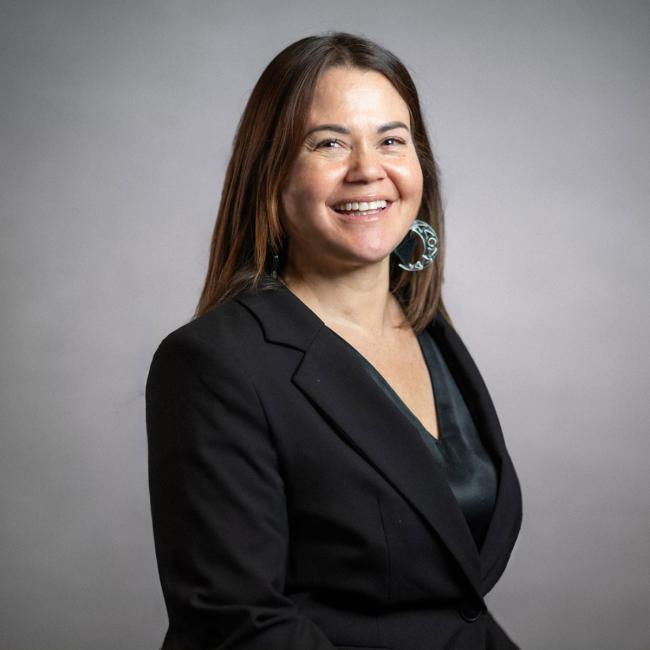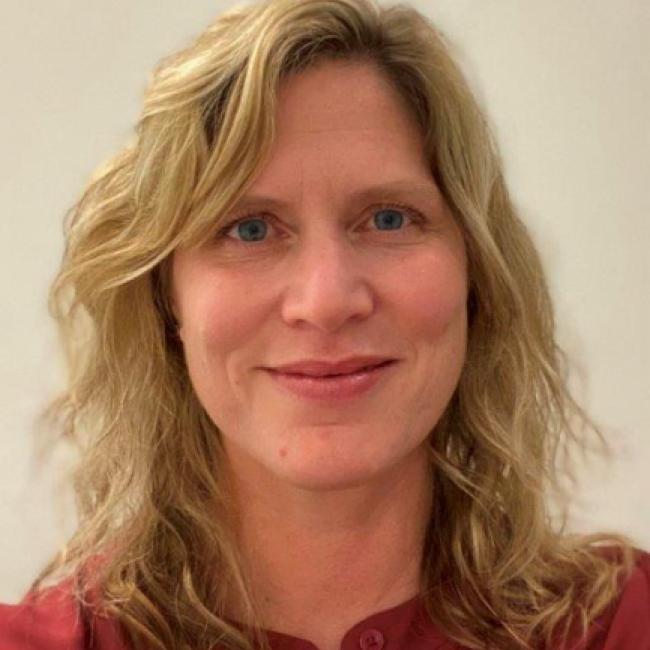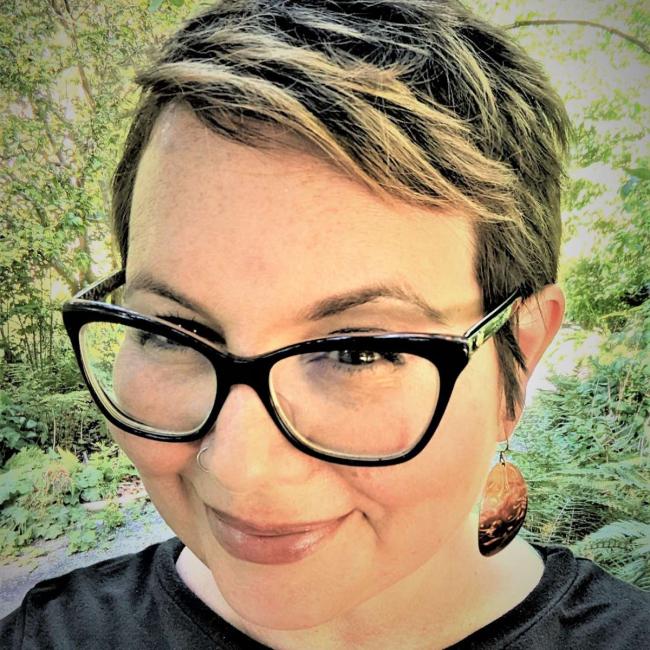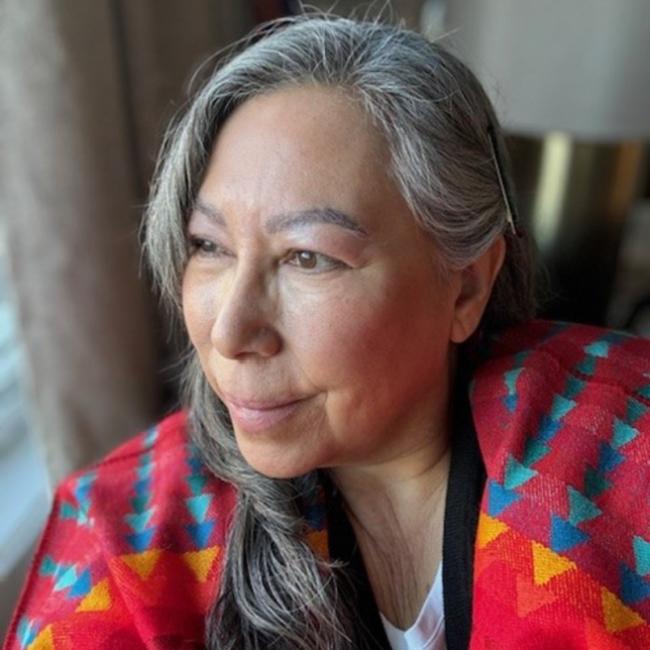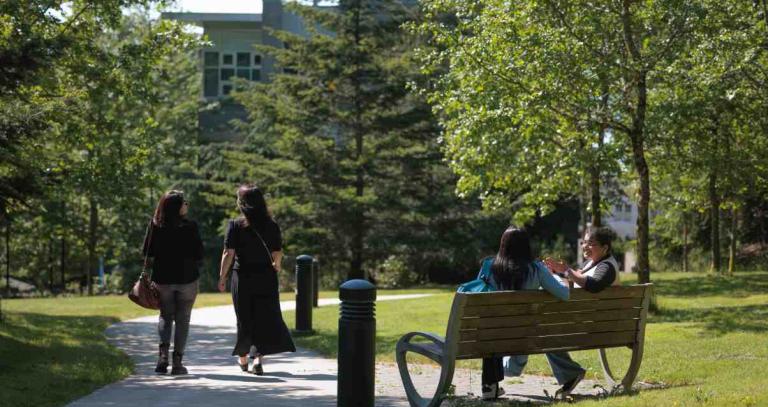Learn to lead in higher education environments. Study theory, research and issues facing post-secondary schools.
This program is designed for current and aspiring administrators and leaders in post-secondary educational environments.
Delivered through online learning, one virtual residency and one on-campus residency, you'll study theory and best practices unique to working in leadership roles in universities and colleges.
With a Master of Arts in Higher Education Administration and Leadership, you'll be prepared to put this knowledge into practice to lead meaningful change.
Courses
Systems thinking, leadership, strategic planning, leveraging technology, global and national perspectives, and more.
Expert Faculty
Instructors with extensive experience in higher education systems.
Upcoming offerings
September 28, 2026
Application deadline ℹ
Delivery model
Domestic tuition
International tuition
Related Schedules
September 27, 2027
Application deadline ℹ
Delivery model
Domestic tuition
International tuition
Manage the complexities of a post-secondary environment
Higher education institutions need administrators trained to navigate the complexities of post-secondary environments.
As a current or aspiring post-secondary administrator, you'll study leadership theory and best practices specific to universities and colleges.
Using systems thinking, you'll explore challenges in administration and propose strategic solutions.
Critically assess research in higher education leadership and prepare to apply your knowledge.
Program outcomes
Once you've completed this program, you'll have:
- a systems thinking approach to tackle post-secondary institutions challenges and opportunities
- an enhanced understanding of higher education scholarship and its practical applications
- the ability to engage in self-assessment to enhance your leadership skills, relationships and career goals
Our graduates find success in senior leadership roles at universities and colleges (e.g., vice president, director, coordinator, dean), and leadership and administration roles in student affairs, enrolment services, IT, advancement and business development.
Study through a blend of online and on-campus learning
Online learning
Online courses include readings, lectures (live or recorded), discussions and assignments. Each 3-credit online course requires approximately 100 hours of work. The program begins with a required non-credit course on academic integrity.
Virtual residency
The first two courses, Higher Education Leadership in Times of Change and Approaches to Educational Research in Higher Education offer a two-week intensive virtual residency.
During this virtual residency, you can expect to actively engage in course conversations, activities and assignments throughout the day. You will:
- Be fully present between 8 a.m. to 4 p.m. (Pacific) for the full two weeks of the residency.
- Work with team members in-and-outside of class time to complete course activities and assignments and create class presentations
Program completion options
Option 1: Research paper
Spend six months conducting secondary research and writing a final paper on a topic of your choice. You’ll attend a three-day residency, either on campus or virtually, and share your research in a poster presentation. Courses in the research paper stream: HEAL 560, HEAL 570, LRNT 506 and HEAL 610.
Option 2: Thesis
If you choose this option, you’ll be paired with a thesis supervisor and take two additional courses: LRNT 600 (thesis preparation) and LRNT 690, which offers one-on-one guidance throughout the thesis process.
Your thesis involves primary research that requires ethics approval. You’ll need to apply for this option in advance to ensure sure you’re ready to complete the work within the two-year program window .
Courses
Faculty
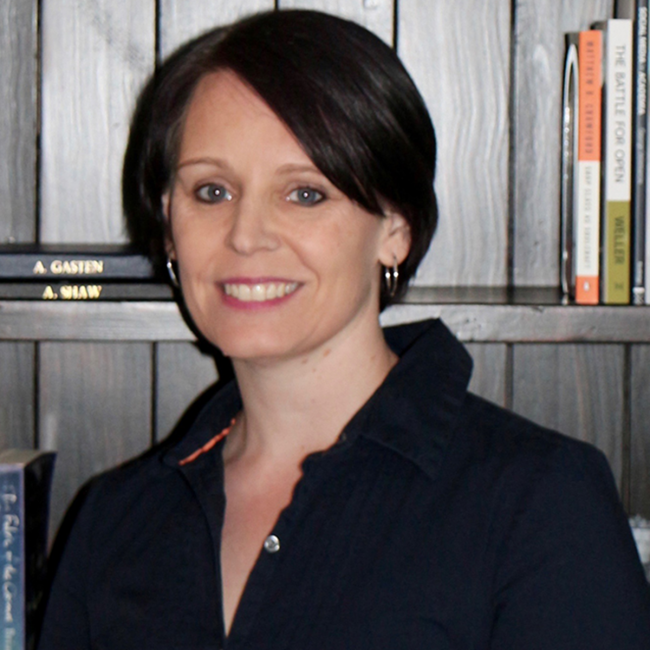
Associate faculty

Associate faculty
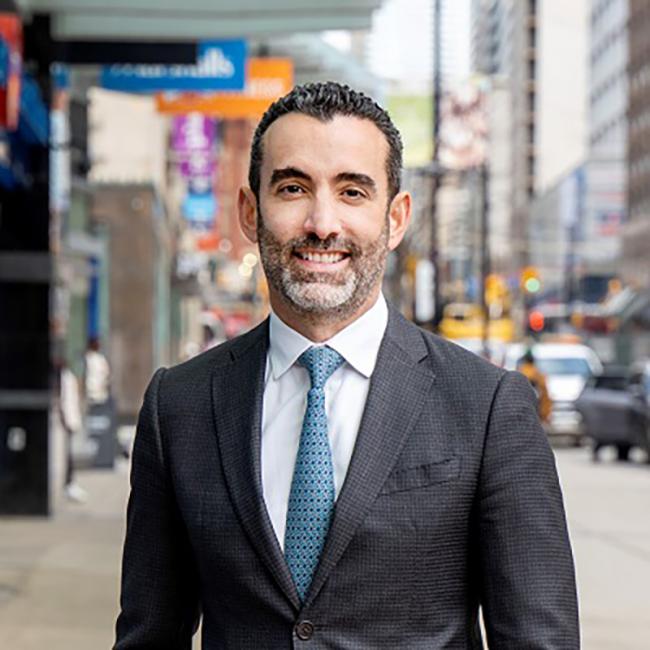
Associate faculty
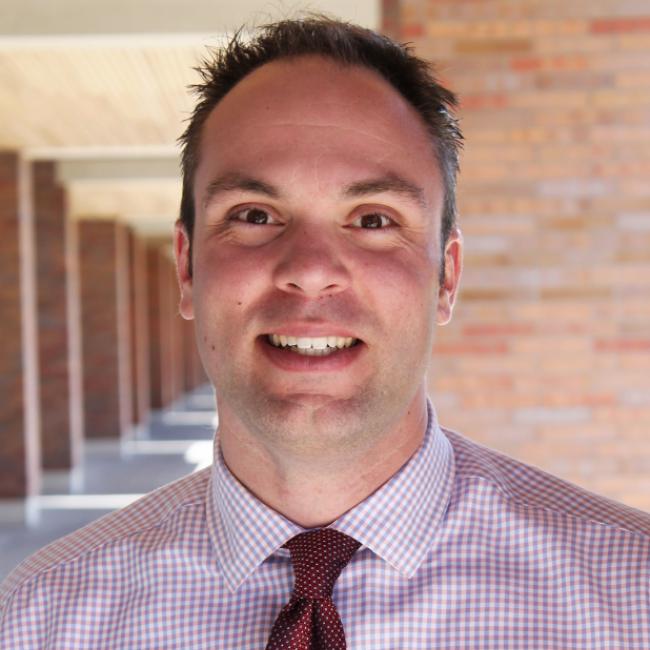
Associate faculty

Associate faculty
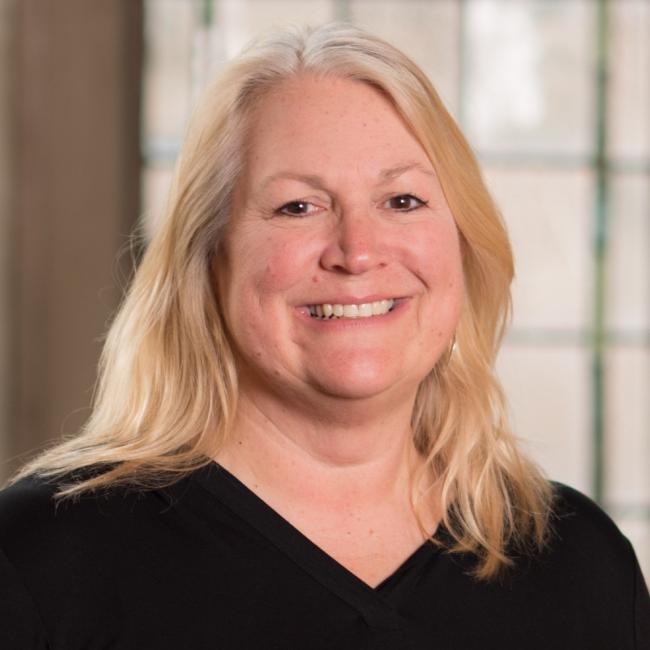
Associate faculty

Associate faculty
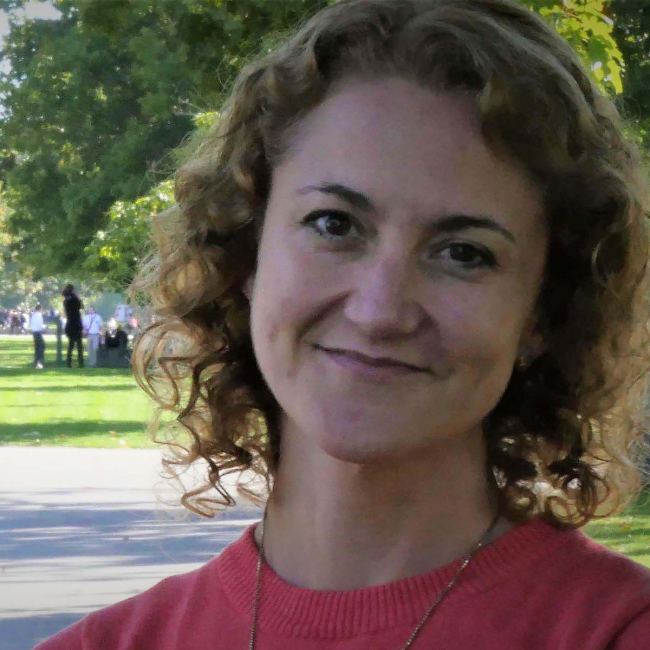
Associate faculty
Transfer agreements
Refine results
Applications are assessed through an integrated and consolidated review of academic credentials, work experience, and personal experience; because of the holistic nature of this review, all applications are assessed on a case-by-case basis.
Standard admission
- Four-year (or comparable) undergraduate degree from a recognized post-secondary institution.
-
Minimum of three years of relevant, paid work experience within recognized higher education institutions (i.e., public or accredited colleges, universities, poly-techniques, or institutions providing formal tertiary programs), including some leadership* experience.
Emerging leaders who have fewer than three years of leadership* experience, yet have been in recent leadership or people management role(s) for two years or more, demonstrate exceptional leadership potential through their professional and life experiences, are preparing for further leadership roles, and otherwise meet the standard admissions criteria, are encouraged to apply.
Flexible admission
- To be considered for flexible admission, applicants would normally require a minimum of seven years of work experience in higher education institutions (i.e., public or accredited colleges, universities, poly-techniques, or institutions providing formal tertiary programs), including a minimum of 3 years of leadership* experience.
*Leadership experience could include one or more of the following:
- Roles in which you consult, negotiate with, or manage diverse interest groups through relationship, in a complex environment
- Roles in which you lead others toward shared goals and outcomes
- Roles in which you influence, organize, and coordinate groups of people
- Leadership roles in volunteer organizations
- Formal organizational leadership roles in which you directly supervise staff or complete performance-oriented work with individuals, groups, or teams
- Overcoming a challenging life experience (for self or others), which involved navigating complex systems and resulted in positive community change beyond the individual
English language proficiency
-
If English is not your primary language, please review our English language requirements.
Additional recommendation(s)
- Applications are assessed through an integrated and consolidated review of academic credentials, work experience, and personal experience; because of the holistic nature of this review, all applications are assessed on a case-by-case basis.
- Please ensure that you demonstrate your leadership experience in your detailed resume, and clearly indicate how your years of experience meet the standard or flexible admission requirements.
All applications to this program require submission of the following information and supporting documents before your file can be assessed for admission:
Application form
In order to apply online, you will be required to create a log-in account using your email address. You will be required to list all credit courses and/or programs you have completed or are currently enrolled in. An application fee will be required. If your application fees are being paid by a third party, review sponsored student information. Once submitted, you may check the status of your application at any time.
Missed your application deadline? While we can’t make any guarantees, we may be able to accommodate late applications if there's still space and enough time to process. If you're interested in an intake that is now closed to applications, apply for the next available intake and email Admissions with your preferred start date. Make sure you’re prepared to submit your program's required documents right away. We can't make an admissions decision without them.
Official transcripts
Applicants are responsible for arranging for the submission of official transcripts from ALL post-secondary (higher education) institutions currently or previously attended, for all credit courses and/or programs. Transcripts are not required for non-credit programs or courses, though some programs may require proof of professional certifications or designations.
Transcripts are considered official only if submitted directly by the Registrar or other recognized authority of the providing institution in the institution's original, sealed envelope. If the envelope has been opened, the transcripts are no longer official and new (official) transcripts will be required to complete your application.
All international transcripts or credentials are subject to an international transcript and/or credential evaluation.
Personal statement
Your personal statement is your opportunity to tell us why you are interested in the MAHEAL program and how the program will help you meet your professional goals. Your personal statement should address each of the following questions:
- What can you contribute to the class' learning?
- What do you anticipate will be your challenges as a graduate student in the MAHEAL program?
- What do you expect from the MAHEAL program in terms of the learning process?
- What do you envision for your professional goals once you have completed the program?
Your 750-850 word statement should be presented in a well written and concise manner using proper grammar and punctuation.
Reference letters
Your application requires two letters of reference. Ideally, these letters speak to your academic potential, your professional expertise and your personal attributes. Applicants should provide one professional reference letter and one academic reference letter. Applicants who may have difficulty securing an academic reference may instead submit a personal character reference.
- Professional reference: This letter should attest to your performance in the context of your current or previous work. The letter can address such areas as leadership potential, career commitment, human relations and supervisory skills, flexibility, communication, and technical skills.
- Academic reference: Academic letters of reference should attest to your academic achievement, study skills, teamwork, leadership potential, human relations, flexibility, communication and technical skills.
- Personal character reference: Your personal character reference should consist of a letter from someone who has known you for several years outside of the context of your work. Please ask the writer to indicate the length of time and context in which they have known you, and to consider the following attributes in their letter about you: honesty, integrity, responsibility, adaptability, concern and respect for others, sense of self-esteem and confidence.
Structured résumé
Your structured résumé should include the following:
- Education: List all post secondary education, degrees, diplomas, and certificates you have achieved.
- Work experience: Please include name of organization, length of service (month & year), and a brief description of duties.
- Training and professional development: List career related training and professional development programs completed within the past five years. Include the source of training, and the duration and year completed. List other training and personal development programs not already identified.
- Voluntary/unpaid work experience: List and describe any voluntary/unpaid post-secondary employment and/or community service experience. Please include name of the organization, length of service and a brief description of your duties.
- Leadership/change agent/trainer experience: Briefly describe any specific training and/or experience you have had as a group/project leader, coordinator of change initiatives, or trainer.
- Professional memberships/affiliations: List memberships and positions you hold/have held in professional associations, service clubs, the community/volunteer sector.
- International experience: Indicate any work and/or volunteer experience you have had that you feel is relevant to the MAHEAL program.
If applicable:
- Applicants declaring permanent resident or Convention Refugee status in Canada, must submit a copy of their Permanent Resident Card (PR card) along with their application.
- Transcript evaluation fee or credential evaluation report, if submitting international transcripts.
- An official English language proficiency score report or other evidence of proficiency if English is not your primary language.
- Other information or documents as may be requested to determine your eligibility.
For information on how and where to send your supporting documents, please refer to the document submission guidelines.
Financial aid and awards
Refine results
You can choose how you want to complete the final component of your Master of Arts in Higher Education Administration and Leadership.
Option 1: Research paper
You'll spend six months conducting secondary research and writing a final paper on a topic of your choice.
You'll also attend a three-day residency, either on campus or virtually, and share your research in a poster presentation.
Courses in the research paper stream: HEAL 560, HEAL 570, LRNT 506 and HEAL 610.
Option 2: Thesis
Students who choose the thesis stream are required to apply for approval. The application process is in place to ensure students are committed to finishing the thesis within the two-year program time frame.
You'll be working under a tight timeline, given that the thesis will require primary research ethics approval.
You'll work with a thesis supervisor, as well as complete two additional courses: LRNT 600, a thesis-proposal course, and LRNT 690, which provides you with one-to-one support throughout the thesis process.
Royal Roads University’s applied research mirrors its interdisciplinary curriculum and is based on being solution-oriented and real-world focused. The research featured here aims to inspire and celebrate the relevant work students perform in their programs and in their fields. The following students have been nominated as examples of research in action and student research excellence.
Chelsea Ousey
Title: On Your Own: Study-Work-Permanence Transitions of International Students in Canada
As government financial support of post-secondary institutions has decreased over the last 40 years, Canadian universities and colleges have become increasingly dependent on international students’ tuition to generate crucial revenue in order to stay afloat. Despite this, few studies have analyzed international students’ labour market and permanent residency outcomes in Canada. Therefore, we lack a clear understanding of how international students fare post-graduation.
EduCanada, the Canadian government’s marketing campaign, is informed by Canada’s International Education Strategy and promotes ‘seamless’ study-work-permanence transitions to international students to encourage their studying in Canada. However, this ‘seamlessness’ is incongruent with international students’ lived experiences in their studies and after graduating.
Master of Arts in Higher Education Administration and Leadership alumna, Chelsea Ousey undertook a qualitative systematic literature review using critical and decolonial theories to analyze the ways in which the Canadian immigration system disenfranchises international students, despite their importance to Canadian higher education and our nation-building goals.
Ousey’s research shows international students face barriers securing skilled work after graduation, which in turn negatively impacts their ability to apply for permanent residency. Further, international students’ expectations of improved job prospects in Canada were unmet, although they did generally report feeling positively about their decisions to stay here after graduation.
Ousey’s research argues that Canada’s neoliberal immigration policies ensure the country benefits from international students’ economic stimulation, but fails to provide them with essential resources
Ian Schultz
Title: The Impact of Sexual Violence Policies on North American Post-secondary Campuses
It is estimated that one in five women will experience sexual violence during their post-secondary studies. Sexual violence on campus is a significant concern at post-secondary institutions in Canada and the United States, resulting in the development of specific sexual violence policies at many institutions. This research project utilized a qualitative systematic literature review methodology to evaluate literature related to sexual violence policies published in the last 10 years to identify the impact these policies have on survivors of sexual violence. A theoretical framework of intersectionality guided this study. Additional areas of focus in the research included evaluating how sexual violence policies compare between different institutions, as well as how policies have been designed to be survivor focused. The results of the study demonstrated that the design of sexual violence policies ultimately impacts whether a survivor will have a positive experience navigating support at their institution. The research also identified that there is considerable inconsistency between institutions in how they address instances of sexual violence on campus, despite federal and provincial legislation that requires institutions to implement specific policies and programs. Recommendations for leaders in higher education following this research include ensuring that sexual violence policies are designed to be trauma-informed, provide autonomy to survivors in navigating their own recovery and complaint processes, and to be reflective of the institutional structures and culture on campus that perpetuate sexual violence. Future research in this area should seek to identify rationale for why institutions continue to be non-compliant to legislature related to sexual violence policies, outside of not having appropriate fiscal and programmatic resources.
Jasdeep Randhawa
Title: Anti-Racist Systemic Change through Leadership in Higher Education
Summary: Canadian higher education institutions (HEIs) are held accountable for achieving racial equity; to move their performative anti-racism to truly transformative anti-racist systemic change. Despite administrative leaders’ best efforts in enacting various strategic plans to move equity, diversity, and inclusion further, their plans are criticized as being advertising and funding strategies, while maintaining the whiteness of their institutions. My systematic literature review explores the strategies administrative leaders in HEIs can adopt to facilitate systemic change and lessen the marginalization experienced by their diverse stakeholders. Using critical race theory, intersectionality and decolonial theoretical frameworks, 32 sources were found in support of organizational change as a strong strategy for equitable leaders. Climate assessments and search conferences provide administrative leaders an action-oriented approach to systemic change informed by the marginalized stakeholders themselves. Research implications for measurable outcomes and accountability are identified and play a key role in the success of systemic anti-racism through organizational change.
Jeannette Cable
Title: Faculty Adoption of Technology and Blended Learning in Polytechnics
The COVID-19 global pandemic disrupted traditional learning environments in polytechnics as institutions abruptly moved from face-to-face to online or blended learning models. Some instructors were motivated to implement innovative blended learning techniques; for others, the rapid shift to online course delivery impacted their willingness to overcome barriers to the new teaching method. This systematic literature review investigated barriers to using technology and the adoption of blended learning, and the motivation and willingness for faculty to implement new teaching practices in polytechnics.
The findings indicated that many polytechnic instructors are comfortable with technology due to extensive industry experience, but some lack the pedagogical knowledge to implement the digital tools for effective blended learning delivery. The barriers are often the quality of technical systems, workload, and the lack of support to learn how to best use technology in a blended learning environment. Motivation to overcome these barriers is driven by technology, pedagogical, and institutional support. With an understanding of factors that encourage or discourage instructors from accepting and exploring new digital learning tools to simulate hands-on training, leaders can create a sustainable blended learning transformation plan at a polytechnic. The evidence supports recommendations to develop an institutional blended learning framework, create a technology and pedagogical skills assessment for instructors, and foster an innovative and learning culture for successful implementation of long-term blended learning strategies.
Tori McMillan
Title: Servant Leadership: A Two-Eyed Seeing Approach
The release of the Truth and Reconciliation Commission's Calls to Action in 2015 have provided a blueprint for higher educations leaders to recognize and overcome the history of colonization in Canada. Many post secondary institutions have responded by creating Indigenous strategic plans to address the need for greater representation within academia. These plans call for more Indigenous spaces, services, and courses that accurately and respectfully bring Indigenous cultures, knowledge systems, and values into the higher education sector. What is also critical are that these initiatives be led by Indigenous people who can share their lived experiences and cultural perspectives.
Tori's research looked at the connections between the Mishomis (Grandfather) Teachings of the Anishinaabe, with the principles of Servant Leadership. By applying the complementary theoretical frameworks of Two-Eyed Seeing and Ethical Space, the strengths of each value system were examined through a systematic literature review. Ultimately, these systems were synthesized to demonstrate that Indigenous knowledge is less about looking outwards for new information, and more about looking inwards to discover the connections that already exist. The implications of this study highlight a growing need within academia for Indigenous Knowledge to support and enhance Decolonization, Indigenization and Reconciliation efforts.
